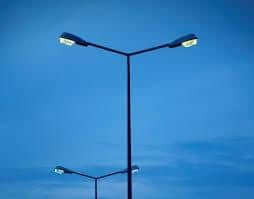Hampshire's streetlights to be dimmed under council plans prompting safety fears
and live on Freeview channel 276
If approved, the time streetlights are switched off overnight would be extended and others would have their brightness reduced by as much as 80 per cent from April 2025. Hampshire County Council said the move would contribute towards addressing the council’s overall anticipated £132 million budget deficit from April 2025, saving £500,000 each year. It said that fear of crime could be heightened in the darker streets, but there is “no evidence” to suggest that the changes would lead to a rise in actual crime. The plans do not include Portsmouth whose lights are controlled by the city council.
Dr Shonagh Dillon, chief executive of Aurora New Dawn, a women-led charity specialising in offering support to victims and survivors of stalking, domestic violence and abuse, and sexual violence, said “women do feel safe in well-lit areas” and any reduction of street lighting will “restrict” women and girls from certain areas.
Advertisement
Hide AdAdvertisement
Hide Ad

Dr Dillon said: “The College of Policing advises that research evidences street lighting can reduce violent crime by up to 21 per cent; it is possible that some offenders will view unlit areas as an opportunity to target victims because of their vulnerability. Although we cannot definitively claim that street lighting prevents sexual violence, and we know that perpetrators of sexual violence and harassment will use any means necessary to commit offences, the reality is that women do feel safer in well-lit areas. There is an important element in the freedom to feel safe as a woman or girl in Hampshire, and any reduction of street lighting will restrict women and girls from certain areas. This isolates women and girls and curtails their freedom to access certain areas, especially in the winter.”
An agreement between the council and Hampshire and Isle of Wight Constabulary has been in place since 2019 where officers can ask for lights to be turned on throughout the night as an emergency measure, as well as an emergency procedure for situations in which lights need to be turned on in response to an immediate incident.
If approved, the plans would see residential streets where the council already switches off lights between 1am and 4am extended by two hours per night so that lights are switched off from midnight until 5am. This would not include the night of December 24 into December 25 or December 31 into January 1, when the lights would remain on all night. For streetlights on the classified road network, the county council has proposed to increase the dimming level to 45 per cent from dusk to 11.30pm and 40 per cent from 5.30am to dawn.
The proposal would not require physical interaction with streetlights since they could be controlled remotely and adjusted in real time. Alternatives such as switching to LED lighting, using solar-powered lighting or motion-sensing switches have been considered; however, due to their unsustainability and cost, some of them are no longer for consideration.
Advertisement
Hide AdAdvertisement
Hide AdPublic consultation on the plans is open for residents until March 31. You can give your feedback using the online consultation response form. Or, if you prefer to complete the response form offline, you can download a printable version. You can also email a written response directly to Hampshire County Council using [email protected] or write to Freepost HAMPSHIRE (Please also write PandO, IEU, FM09 on the back of the envelope). Here, you can find more information on the full public consultation process.